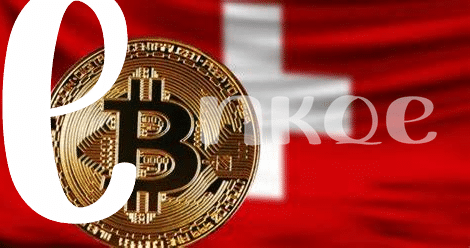Impact of Swiss Regulations on Bitcoin 🇨🇭

Swiss regulations play a pivotal role in shaping the landscape for Bitcoin within the country. These regulations provide a framework that dictates how Bitcoin can be used, traded, and stored in Switzerland. The stability and clarity offered by Swiss regulations have attracted numerous cryptocurrency businesses and investors to establish a presence in the country. The impact of these regulations extends beyond Switzerland, influencing global perceptions of Bitcoin and setting a precedent for how governments can approach regulating digital currencies.
Regulatory Framework in Switzerland 📜
Switzerland’s regulatory framework for cryptocurrencies reflects a balanced approach aimed at fostering innovation while ensuring investor protection and financial stability. The country has established clear guidelines for the issuance and trading of digital assets, positioning itself as a favorable environment for blockchain businesses. With a focus on compliance and transparency, Switzerland offers a supportive ecosystem for crypto startups to thrive and contribute to the broader financial landscape. This conducive regulatory environment has attracted numerous blockchain projects and investments to Switzerland, solidifying its reputation as a leading hub for digital finance.
Bitcoin Adoption Trends in Switzerland 📈

– Switzerland has seen a steady rise in the adoption of Bitcoin in recent years, with more individuals and businesses embracing the digital currency for various transactions. This trend reflects a growing acceptance of blockchain technology and cryptocurrencies within the Swiss financial ecosystem. The increasing use of Bitcoin in Switzerland signifies a shift towards a more digital and decentralized financial landscape, positioning the country as a key player in the global cryptocurrency market.
Challenges Faced by Swiss Crypto Industry 💼

Switzerland’s crypto industry faces a spectrum of challenges despite the favorable regulations. Issues such as regulatory uncertainties, security concerns, and potential for money laundering continue to loom over the sector. Additionally, the industry grapples with the need for standardized compliance measures and clarity on taxation policies. Navigating through these hurdles requires a concerted effort from stakeholders to establish trust and legitimacy within the ecosystem. It’s crucial for the Swiss crypto industry to address these challenges head-on to sustain its growth and reputation in the global market.
For more insights on innovative approaches to Bitcoin banking services regulations, you can explore the article on bitcoin banking services regulations in Sri Lanka.
Innovations and Developments in Bitcoin Sector 🔍
In recent years, the Bitcoin sector in Switzerland has witnessed a surge in innovative developments. Blockchain technology, which underpins Bitcoin, has been a focal point for many Swiss companies, leading to the creation of various decentralized applications (dApps) and platforms. These innovations have not only streamlined processes within the cryptocurrency ecosystem but have also opened up new avenues for financial services and digital asset management. Additionally, Swiss startups are actively exploring ways to enhance security measures and scalability in the Bitcoin network to ensure its resilience and efficiency in the face of evolving technological challenges.
Future Outlook for Bitcoin in Switzerland 🔮

As the Bitcoin landscape in Switzerland continues to evolve, a promising future beckons for the cryptocurrency within the alpine nation. With a progressive regulatory environment and a growing interest in digital assets, Switzerland is positioning itself as a key player in the global Bitcoin scene. As blockchain technology advances and financial institutions increasingly explore the potential of digital currencies, Switzerland stands poised to further solidify its position as a hub for crypto innovation and adoption.
For more information on bitcoin banking services regulations in Suriname, please refer to the guidelines outlined for bitcoin banking services regulations in Sweden.
